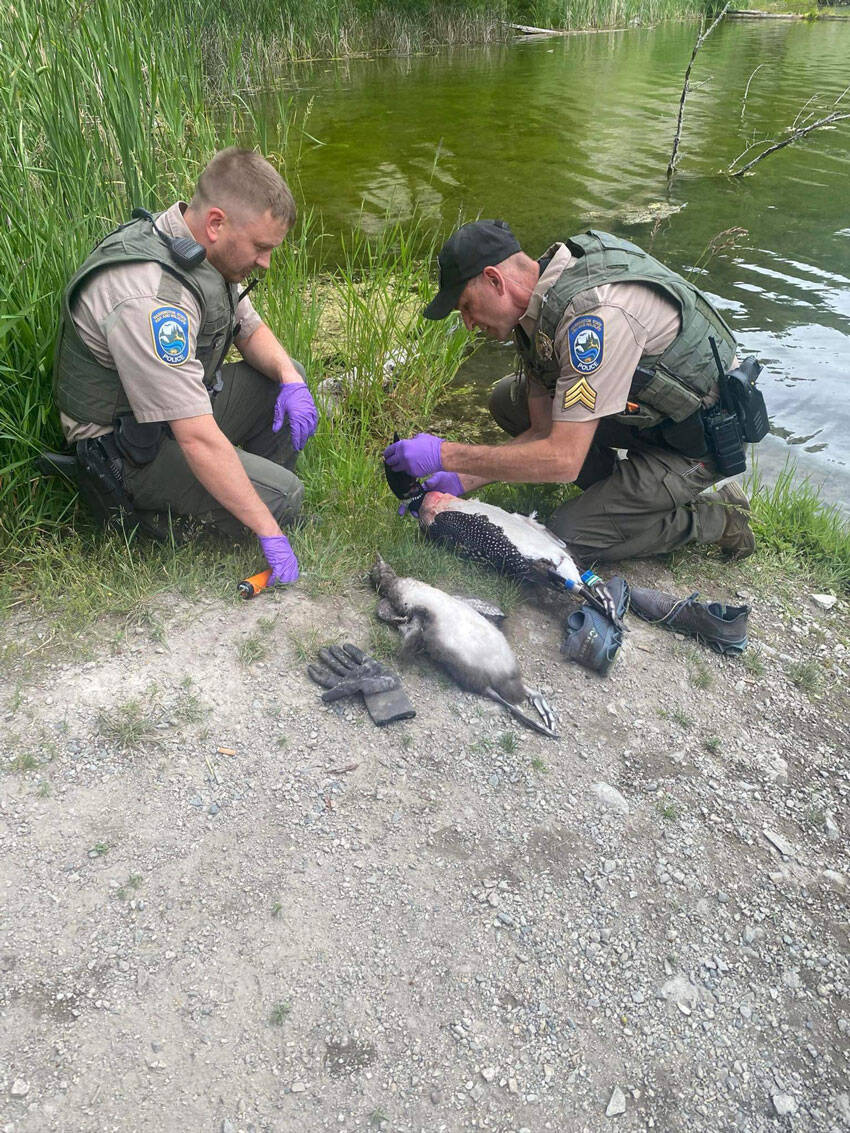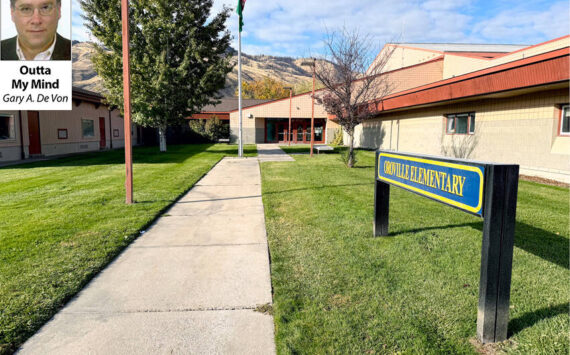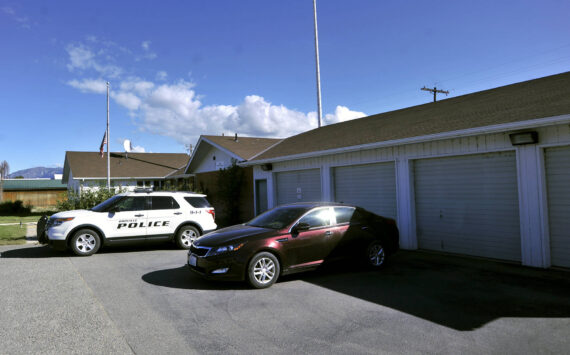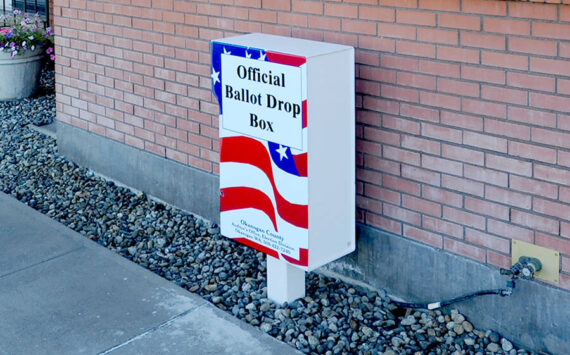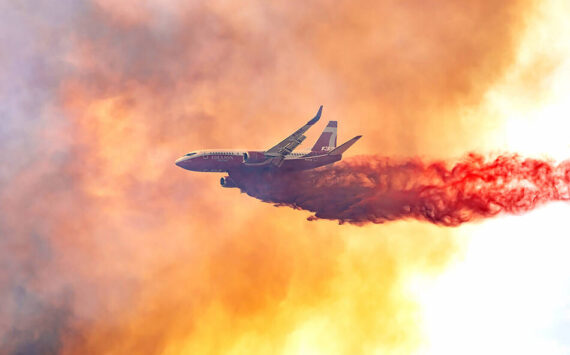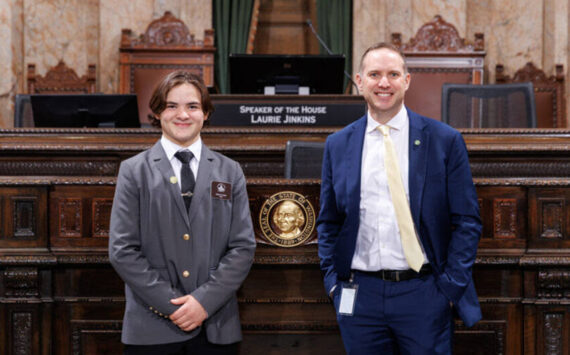TONASKET – The Washington Department of Fish and Wildlife (WDFW) Police are asking the public for any information on an incident where someone shot and killed two adult common loons and their chicks on Beaver Lake in the Okanogan Highlands.
Non-governmental organizations are offering an $8,000 reward for information leading to arrest and convictions of those responsible.
The incident occurred the weekend of June 22, when WDFW Officers responded to a report of multiple dead loons near Beaver Lake on the Colville National Forest. With the help of several concerned community members, the officers recovered two adult loons and one chick. A second deceased chick was reportedly seen in the lake earlier that day. Multiple witnesses reported hearing gunshots in the area the evening before.
The shootings occurred from the former Beaver Lake Campground on the southeastern end of the lake. Witnesses from the campground at the northwestern end of the lake reported hearing shots fired from that direction, according to the Columbiana, an online environmental magazine operated out of Chesaw.
“Common Loons are one of the most adored and admired wildlife species in North America. Disposing of Common Loons takes away joy from those that enjoy watching wildlife. A 2022 Washington survey of recreation activities reported, 6.2 million people watched wildlife, 1.2 million fished and 0.3 million hunted,” write Daniel Poleschook, Jr. and Virginia R. Poleschook with the Field Scientists, Biodiversity Research Institute in an article in the Columbiana (https://www.columbiana.org/beaver-lake-loons.html).
The community has come together to collect and offer a reward for information leading to the arrest and conviction of those responsible for the death of the Loons at Beaver Lake. The current reward being offered is $8000 but contributions are still being accepted. Contributions in the form of money order or personal check can be made to Columbiana, a 501c3 non-profit organization who will manage the fund. Mail to: Columbiana, 2055 Chesaw Rd., Oroville, WA 98844. Call for more info: 509-560-0742.
“The adult male that was shot had been the territorial male at Beaver Lake for 11 seasons since 2013 and had fathered 14 young during that period. He was banded as #0689-09467 by biologists and field scientists from Biodiversity Research Institute, who were assisted by biologists from the Washington Department of Fish and Wildlife and the United States Forest Service on July 23, 2023. This was only the second season for the territorial female who had produced two chicks in 2023 and also in 2024,” write the Poleschooks.
The WDFW encourages anyone who might have relevant information about this incident to contact WDFW at 877-933-9847, email WDFW’s poaching tip email, or send a text tip to 847411. The public can also report online on WDFW’s website. Tips can be provided anonymously.
Illegally killing a common loon is a misdemeanor (RCW 77.15.130.c.ii) punishable by up to one year in jail and a fine of up to $500 per violation. Additionally, a penalty of $2,000 per bird can be assessed upon conviction.
Columbiana, Conservation Northwest, Delta Waterfowl’s Eastern Washington Chapter, First Hunt Foundation, Northwest Swan Conservation, Washington Waterfowl Association (WWA), and the WWA Seattle and Southwest chapters are contributing to the reward being offered.
The common loon (Gavia immer) is listed as a state sensitive species in Washington and is protected in the United States as a migratory, non-game species by state and federal laws. There are only 12 known breeding pairs of common loons nesting this year in northeastern Washington, and an unknown, but fewer number of nesting pairs west of the Cascade Mountains. The main threats to common loons at breeding lakes are nest disturbance, lead poisoning and poaching, according to the WDFW.
“The population of common loon pairs nesting in Washington has been increasing slowly, up from four known pairs in 1995. This increase is likely the result of focused collaborative conservation work between WDFW, the U.S. Forest Service, the Confederated Tribes of the Colville Reservation, the Biodiversity Research Institute, dedicated volunteers and many other partners,” said the agency.
WDFW Police works to protect the public’s safety and to preserve, protect and perpetuate fish, wildlife and ecosystems while providing sustainable fish and wildlife recreational and commercial opportunities.
The authors of the article in the Columbiana write, “Common Loons reproduce very slowly and are sensitive to nesting disturbances. Their breeding population has been extirpated from northern California, Oregon, and Idaho, while small populations persist in Montana and Washington in the Northwest on the southwestern limit of their breeding range in North America.’
They have maintained a list of more than 120 known Common Loon mortalities in Washington since 1995. There have been five known shooting mortality incidents during that era, involving five adult Common Loons and three chicks. The present low population of nesting Common Loon pairs in Washington has been increasing very slowly from four pairs in 1995, when research, providing recommendations and conservation measures, and compiling records for the species began by the authors, to the current approximately 20 nesting pairs.
Common Loons reproduce very slowly and are sensitive to nesting disturbances. Their breeding population has been extirpated from northern California, Oregon, and Idaho, while small populations persist in Montana and Washington in the Northwest on the southwestern limit of their breeding range in North America.
The authors have maintained a list of more than 120 known Common Loon mortalities in Washington since 1995. There have been five known shooting mortality incidents during that era, involving five adult Common Loons and three chicks. There is a $2000.00 fine for shooting a Common Loon in Washington, stated as: Fish and Wildlife Code RCW 77.15.130. The total fine in this incident will be $8,000.00. Reward money successfully led to apprehension and prosecution on one of those previous cases.
A growing amount of reward money is also being offered in this case for the recent egregious mass shootings of the Beaver Lake Common Loon family.
